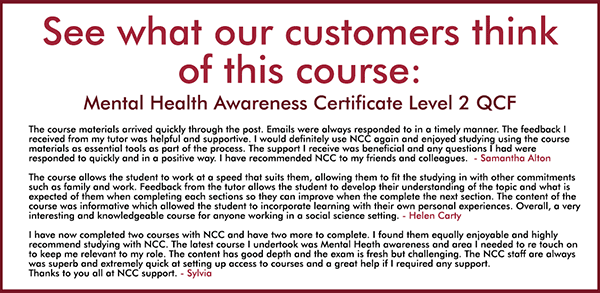World Mental Health day is a global day of celebration of mental health education, awareness and advocacy.
World Mental Health day is a global day of celebration of mental health education, awareness and advocacy. Since 2006 each day has highlighted a specific issue or aspect of mental health, last year for example was Schizophrenia, the year before was older adults.
This year, World Mental Health Day is looking at the issue of dignity, and how awareness can be raised as to what can be done to ensure that people with mental health issues can live with dignity.
In this blog post we will look at 3 of the key areas that affect dignity in mental health care.
Ageism
Ageism or age discrimination is the prejudice against a person or people based on how old they are. Ageism in relation to mental health care usually occurs when an individual with a mental health issue turns 65. According to a report by the Healthcare Commission, once people reach 65 the services available to them were noticeably fewer than the services they had access to previously.
Additionally it has been noted that there is a false perception that many mental health conditions stem from the sufferer becoming older, and that it is a natural part of ageing. Due to this the support that should be available for certain conditions is sometimes looked over.
All people with mental health issues should receive the same level of care, regardless of their age or the perception of the issues they are suffering with. The elderly should not be spoken to like they are children or patronised, likewise younger people should also not be disadvantaged because of their age.
Inequality & Discrimination
Inequality and discrimination are two very important areas when it comes to dignity in mental health care. With the UK being a diverse and multicultural society there are many different minority groups throughout the country. There is a risk of inequality and discrimination across all walks of life however there are some acute areas when it comes to mental health care.
A main area is the food that is provided to people who suffer with mental health issues, who receive residential or domiciliary are. Certain groups or individuals have specific dietary requirements from either their culture or religion, this should not be overlooked and people should have a choice in the type of food they receive.
Another area is communication. Some individuals with mental health issues may also have regional or ethnic accents. With communication being a key factor in looking after people with mental health conditions, any careers should be able to effectively understand and converse with everyone in their care, regardless of race or ethnicity.
Along with racial or religious discrimination, sexism is also a problem when it comes to dignity. The main issue is having enough room to have same sex wards or areas for mental health patients who receive care in a residential setting.
Abuse
A hot topic in the UK at the moment is abuse in care, specifically mental health care. Every person in the UK should be free from abuse, whether they have a mental health issue or not. Unfortunately it has been highlighted through various recent news reports that there is a problem with abuse in care in the UK. Some individuals in the UK who are suffering with mental health issues are being abused. This abuse can come in many different forms, physical, psychological, sexual, financial and neglect. Understanding dignity and respect is paramount in ensuring that people are not being abused either directly or indirectly. Physical abuse is often the easiest to identify and safeguard against however other types of abuse, specifically psychological or neglect are much harder, often the abuser doesn’t realise that their actions are a form of abuse.
Treating people with the dignity and respect that they deserve and understanding an individual’s specific needs will go a long way into ensuring that abuse is wiped out in mental health care.
All these areas overlap due to the complexity of mental health care, however if dignity best practice is applied there are many minor issues that can be negated. This is why dignity is a key part of mental health care and we can see why this World Mental Health Day is highlighting this area.
If you want to learn more about this, try our Mental Health Courses or dignity and respect in particular?









